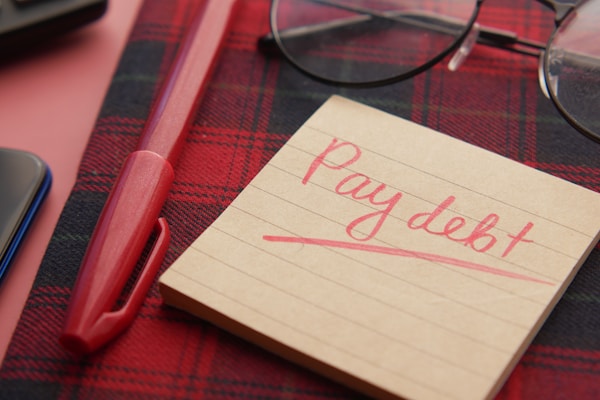Debt can often feel like a heavy burden, and at times, it can seem impossible to escape. However, with proper planning and informed decision-making, it is possible to break free from the chains of debt and regain your financial freedom. In this article, we will discuss strategies for getting out of debt and saving money in four simple steps.
Developing a Repayment Strategy

There are a few popular approaches to consider for debt repayments, such as the debt avalanche method, the debt snowball method, and debt consolidation. Each strategy has its pros and cons, so it’s crucial to determine which approach works best for your situation.
The debt avalanche method involves paying off your debts in order of interest rate, starting with the highest. By doing this, you can save money on interest payments and get out of debt faster. On the other hand, the debt snowball method focuses on paying off the smallest debt first and gradually working your way up to the larger ones, providing a sense of motivation and accomplishment as each debt is eliminated.
If you’re struggling with multiple debts and organizing your repayment strategy seems daunting, you might consider seeking help from a professional debt relief organization, such as Citizens Debt Relief. They can assist in creating an effective plan tailored specifically to your situation. That way, you can start paying off unsecured debt and be well on your way to financial stability.
Building an Emergency Fund
A crucial aspect of financial stability is having an emergency fund. This is a stash of money set aside specifically for unforeseen expenses, such as medical bills, car repairs, or job loss. By having an emergency fund in place, you can avoid taking on new debt when unexpected costs arise.
When building your emergency fund, aim for an initial goal of at least three to six months’ worth of living expenses. Once you achieve this, consider increasing your goal to cover an even more extended period. Though it may seem challenging to save money while also paying off debt, having a safety net in place can prevent you from falling back into debt in the future.
One way to build your emergency fund while also paying off debt is to allocate a portion of the money saved from cutting expenses. This strategy can help you strike a balance between financial stability and aggressive debt repayment.
Increasing Your Income

Another way to speed up your journey out of debt and towards financial freedom is to increase your income. While this isn’t always an easy task, there are a few strategies to consider, such as picking up a part-time job or freelancing, selling items you no longer need, or investing time in professional development to possibly qualify for a higher-paying position in your field.
Keep in mind that when increasing your income, it’s important not to fall into the trap of lifestyle inflation where you start spending more as you earn more. Instead, direct the extra earnings towards your debts and your emergency fund, so you can achieve your goals faster.
Creating a Budget and Cutting Expenses
When tackling debt, you should make sure to create a budget. This means taking a comprehensive look at your income, expenses, and current debts. By reviewing your finances and understanding where your money is going, you’ll be able to make informed decisions about where you can cut back.
After creating your budget, identify areas where you can potentially reduce your expenses. Some options may include eating out less, canceling unnecessary subscriptions, or installing a more energy-efficient HVAC system with the help of Air Solutions Heating and Cooling. This can help cut down your utility bills. Reducing your spending will allow you to have more money available to put towards your debt payments and will expedite the process of becoming debt-free.
Altogether, getting out of debt and saving money is a multi-faceted process that requires budgeting, cutting expenses, developing a repayment strategy, building an emergency fund, and increasing your income. With dedication and determination, you can achieve your financial goals and enjoy the freedom of being debt-free.












